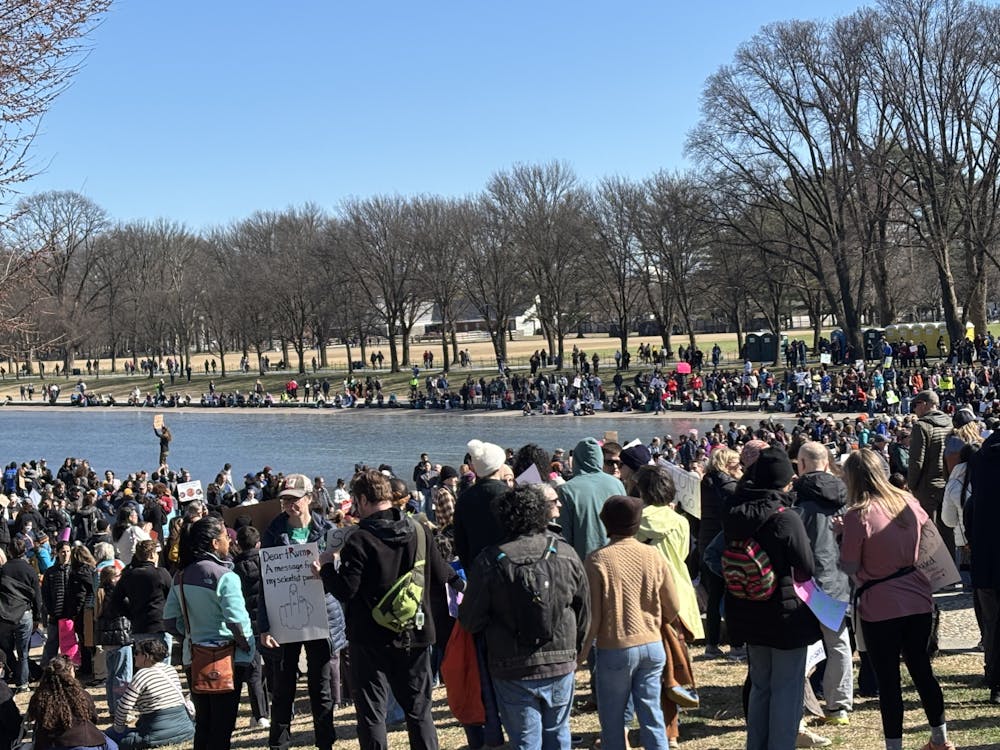Marijuana has been in the spotlight recently for its alleged medicinal properties, prompting 23 states and the District of Columbia to legalize medical cannabis. As medical marijuana becomes increasingly accepted as a viable alternative to traditional therapies, the recreational value of the drug is also increasing.
A 2015 study published in JAMA Psychiatry found a two-fold increase in marijuana use among adults in the United States over the past 10 years. However, before we as a society start accepting the recreational value of marijuana, it is important to understand its risks.
Several recent studies have linked prolonged marijuana, or cannabis, use to adverse health effects such memory loss, impaired immune response, heart failure and decreased sperm count and motility, according to the Centers for Disease Control. However, one of the most well studied associations is that of cannabis use and psychiatric conditions such as schizophrenia, bipolar disorder and psychosis. According to a new study published in BMJ Open, cannabis use can lead to a longer road to recovery for psychiatric patients.
The study, led by researchers at King’s College London Institute of Psychiatry and Biomedical Research Centre Nucleus, found that psychiatric patients with a history of cannabis use experienced more frequent voluntary and forced hospital visits and longer hospital stays overall.
Corresponding author, Rashmi Patel used data mining to search electronic medical records of 2,026 patients who ha been admitted to the South London and Maudsley NHS Foundation Trust hospital system and treated for a first episode of psychosis with early intervention services. By tracking who patients had a history of cannabis use at the time of acceptance, the researchers were able to determine the effect of cannabis on psychiatric health.
Patel and his team found that 46.3 percent of patients self-reported cannabis use within a month of starting early intervention treatment. The use of cannabis was associated with a 50 percent higher frequency of in-patient hospital stays in the five years following an initial visit. Cannabis users averaged 1.8 hospital admissions over five years while non-users averaged just 1.2 visits in the same period.
The use of cannabis was associated with a 50 percent higher frequency of in-patient hospital stays in the five years following an initial visit. Cannabis users averaged 1.8 hospital admissions over five years while non-users averaged just 1.2 visits in the same period.
The use of cannabis was also associated with a 55 percent higher likelihood of compulsory detention under the English Mental Health Act, a 1983 ruling which allows mental health patients to be admitted to psychiatric facilities either for their own health or the for the safety of those around them.
Patel’s results are part of a growing body of evidence establishing the relationship between cannabis use and the risk of developing mental health conditions. A 2011 Australian study that followed 1,600 school age students found that students that used marijuana were five times as likely to be diagnosed with depression compared to those who did not.
Similar associations have been reported for schizophrenia: A Swedish study of 50,000 military draftees showed that the use of marijuana was associated with a 30 percent greater risk of developing schizophrenia. For both of these studies, the participants were deemed normal at the start of the study period; Any diagnosis of depression or schizophrenia was made during the course of the study.
The use of marijuana is particularly prevalent in young people, a concerning trend when one considers that adolescence is a critical period for brain development.
During this time, the brain experiences widespread neuronal pruning, or the removal of some of the brain’s tangled jumble of neurons in order to make them work more effectively. As a result, any psychoactive substance such as marijuana that affects neuronal pruning can have long-term cognitive and psychological effects. A 2011 Australian School Students’ Alcohol and Drug Survey found that 29.2 percent of 17 year olds reported using marijuana, compared to just 3.4 percent of 12 year olds. Patel found in his study that the group most likely to report using the drug was 16-25 year old males.
A 2014 CNN poll found 55 percent of Americans support legalization of marijuana, compared to just 19 percent in 1991. But as marijuana legalization debate continues, it is important to consider the health risks of the drug. Ryan Vandrey, Associate Professor of Psychiatry and Behavioral Sciences at Johns Hopkins, cautions the legalization of medical marijuana.
“It’s not just smoked cannabis being sold. In medical dispensaries there’s cannabis ice cream, candy bars, butter,” Vandrey said in an interview with The Hub. “My concern is that from a public health standpoint, if you have a candy bar with 100 milligrams of THC in it, that seems a recipe for a seven-year-old kid getting ahold of it and having a very, very bad time.”
















